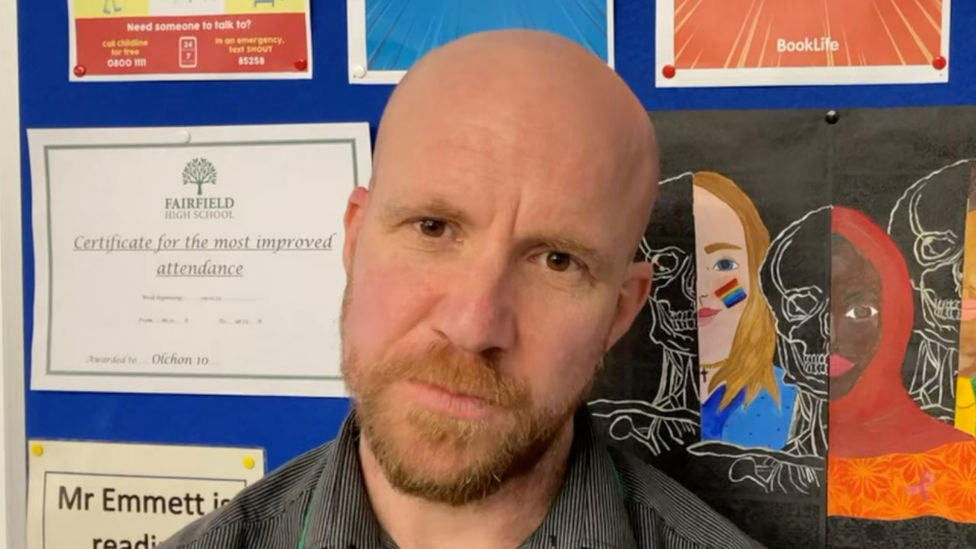Andrew Tate: Group trying ‘different approach’ with teenagers
- Published
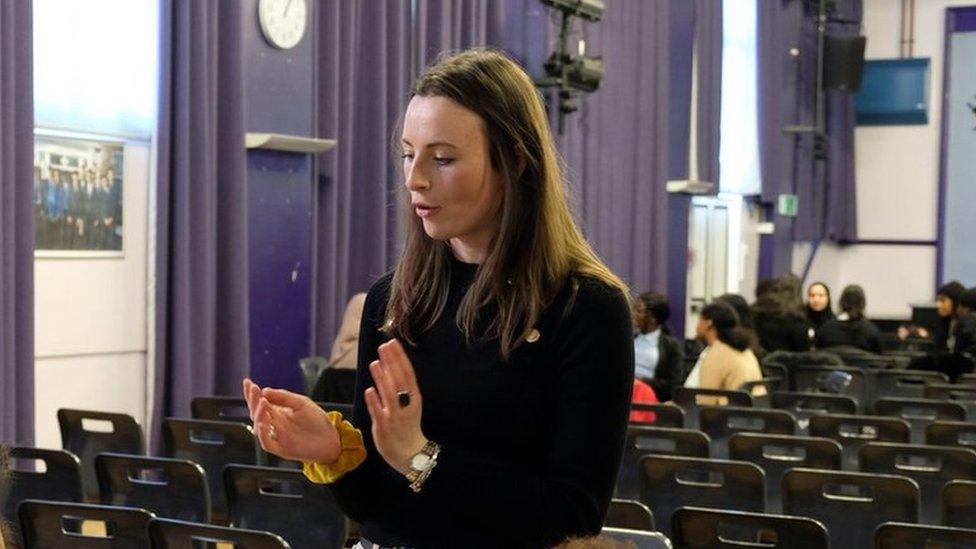
Natasha Eeles started Bold Voices to tackle gender-based violence
A group says a "different approach" is needed to tackle conversations about controversial influencer Andrew Tate with teenagers.
Bold Voices goes into schools and colleges delivering workshops to tackle gender-based inequality and violence.
Founder Natasha Eeles says her team has noticed male teenagers struggling to name positive male mentors.
She said simply labelling Tate as "bad" was not helpful and could alienate young people.
Tate, a former kickboxer, has millions of online followers - despite being banned from sites including TikTok, Instagram, Facebook and YouTube for misogynistic comments.
He is currently detained in Romania, alongside his brother Tristan, as part of an investigation into allegations of human trafficking and rape - which they both deny.
Ms Eeles said: "It's important to not put Andrew Tate in a 'bad box' as then you put any young person who believes in what he says in there too. We need a different approach."
Bold Voices was set up four years ago and has visited dozens of schools across the country, including many in the west of England, speaking to more than 20,000 students and 2,000 staff members.
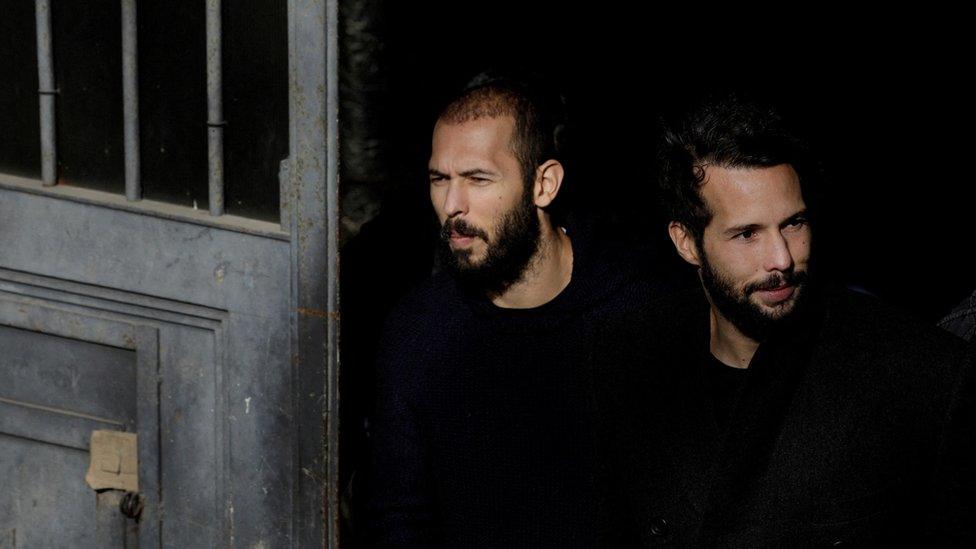
Andrew Tate (left) and his brother Tristan Tate have been in detention since late 2022
Ms Eeles continued: "It's not necessarily Andrew Tate as a person that's attractive, it's the absence of any other positive male role models. In that absence he can step in and attract the attention.
"When you ask boys who their role models are, we either get fictional characters, or they don't have one."
Miss Eeles, who is from Wiltshire and went to Bristol University, started Bold Voices with the aim of "bringing critical conversations about gender to schools".
"What we focus on doing is creating spaces for a conversation and creating a shared language between young people, parents and staff to have conversations about that aren't always the easiest to have but are really important," she said.
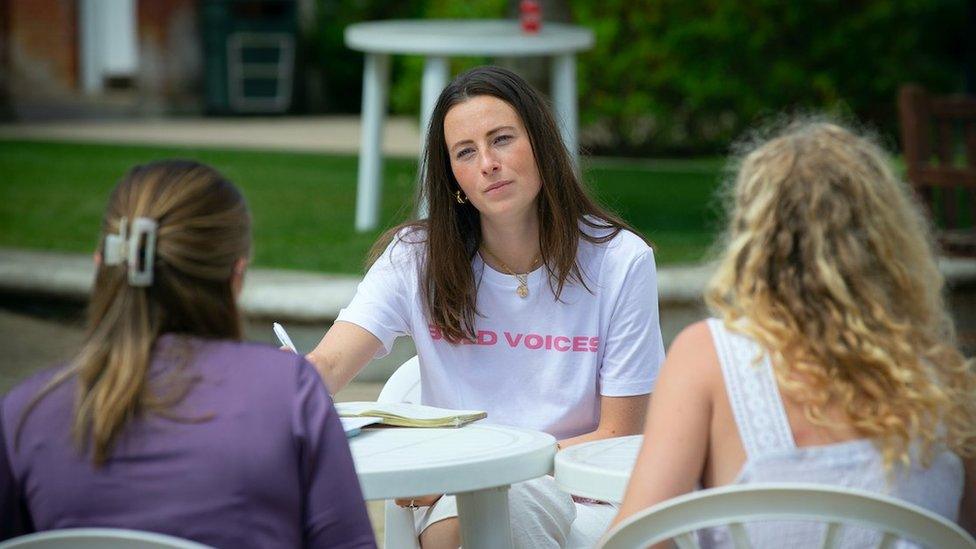
Natasha Eeles has a masters degree in gender
Miss Eeles, who has a masters degree in gender, said Andrew Tate had been coming up in conversations in schools since July 2022.
She said: "The picture of what gendered issues look like in schools is complex, there is a lot going on day-to-day that we don't always notice, stereotypes, attitudes and behaviours that we dismiss as normal.
"Andrew Tate is just one symptom of this wider culture, he has been a big topic of conversation and young people have been talking about him since last year - his narrative and ideology have been coming up a lot."
She said pupils had expressed a "whole spectrum" of views but the "most common" was teenage boys saying they liked some of what the influencer says - but not everything.
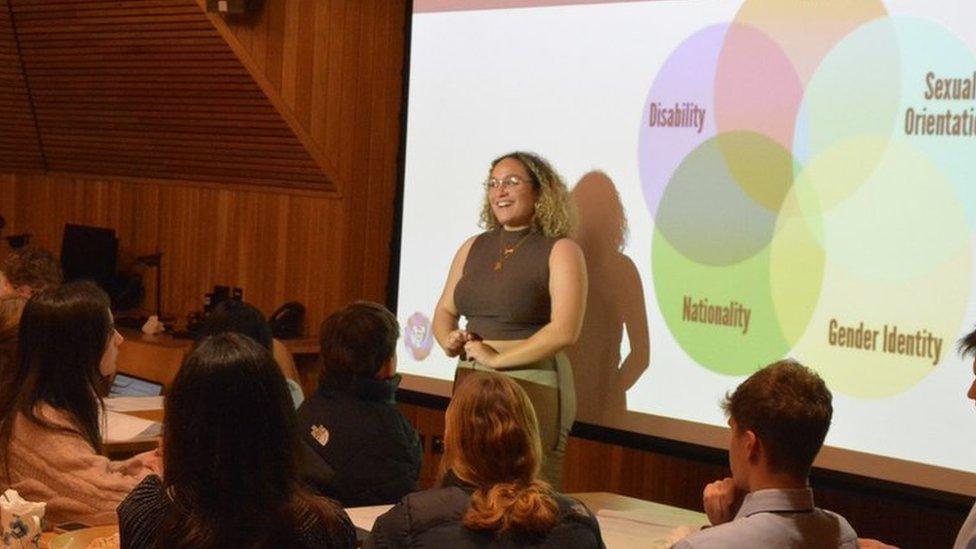
The team discuss issues like intersectionality and prepare students for university
"There is definitely a trend of more boys supporting him - but having said that - we have met lots of girls who think the same," Miss Eeles said.
She said some young people identified with Tate's displays of apparent success and his expression of stereotypes, which her team tried to break down.
"We try and make connections with young people about very traditional ideas about masculinity being restrictive," she said.
Tool kit for parents
Bold Voices has created a tool kit for schools, parents and young people which contains tips on how to start conversations.
Miss Eeles said: "Our first tip is not to approach it as a one-off. Do not have the aim of changing a person's mind - it's about regular on-going conversations.
"The second tip is to step away from binaries like good and bad - don't put Andrew Tate in a bad box. As soon as you do that, you put any young person into that box and that's just not helpful - you set up defences. We need to move towards a critical thinking approach.
"Lastly, make a personal connection to the issue, parents often find the issues young people are dealing with hard to access as it's through a digital lens they themselves didn't have growing up.
"However, what we say is all the issues young people are facing have roots in the same issues that we all experienced growing up - stereotypes, language usages, it all connects to the bedrock - so find that connection."

Follow BBC West on Facebook,, externalTwitter, external and Instagram, external. Send your story ideas to: bristol@bbc.co.uk
Related topics
- Published14 March 2023
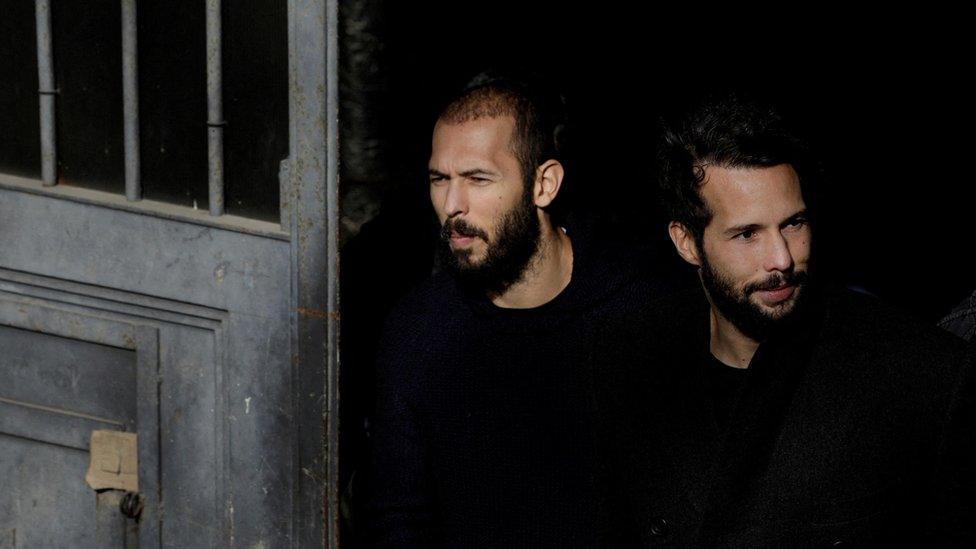
- Published8 March 2023
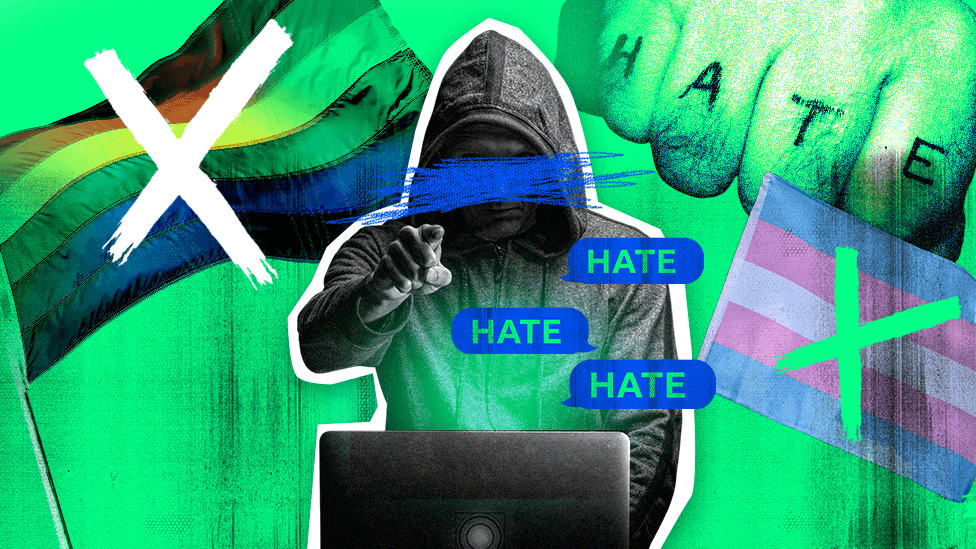
- Published15 February 2023
